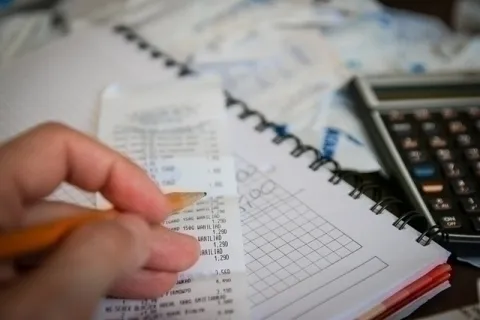- Cryptocurrency trading is subject to capital gains tax, similar to profits from stocks or other investments.
- Traders must report their cryptocurrency transactions and calculate gains or losses for tax filings.
- Some jurisdictions offer tax exemptions for long-term holdings, while others may have specific rules for crypto-to-crypto trades.
Hi everyone! I've recently been getting into cryptocurrency trading, and I'm curious about how tax regulations come into play. I've heard that there are certain rules and reporting requirements when it comes to taxes and cryptocurrency profits. Can someone shed some light on this topic? I'd really appreciate any insights or personal experiences you can share. Thanks in advance!
Hey there! I totally get your curiosity about tax regulations when it comes to cryptocurrency trading. It's definitely an important aspect to consider.
So, to answer your question, yes, there are tax rules and reporting requirements for cryptocurrency profits. In most countries, including the US, cryptocurrency is treated as property for tax purposes. This means that any gains or losses you make from trading, selling, exchanging, or mining cryptocurrencies are subject to tax.
In the US, for example, if you sell or exchange your cryptocurrency, you need to report this on your tax return. The IRS expects you to report your capital gains or losses just like you would with stocks or other investments. The tax rate will depend on how long you held the cryptocurrency before selling it and your overall tax bracket.
Now, reporting your cryptocurrency transactions might sound a bit overwhelming, especially if you're doing a lot of trading. But there are tools and software available that can help you calculate your gains or losses and generate tax reports. Some popular options include CoinTracking, CryptoTrader.Tax, and Bitcoin.Tax. These tools can sync with your exchange accounts and automatically generate your tax reports, saving you a lot of time and headaches.
I personally use one of these software for my own cryptocurrency tax reporting, and it has made the process much easier for me. But keep in mind that it's always a good idea to consult a tax professional or accountant who specializes in cryptocurrency taxation. They can provide expert advice and ensure you're complying with all the relevant tax laws.
Anyway, I hope this sheds some light on the topic for you. If you have any more questions, feel free to ask!
Hey everyone! I'm glad to see this discussion about taxes and cryptocurrency trading. It's definitely an important topic to cover. To answer your question, yes, tax regulations do come into play when it comes to cryptocurrency profits.
In many countries, including the United States, cryptocurrencies are considered property for tax purposes. This means that any gains or losses you make from trading, selling, exchanging, or mining cryptocurrencies are subject to taxation.
For example, in the US, if you sell or exchange your cryptocurrency, you need to report it on your tax return. It's treated similar to reporting gains or losses from stocks or other investments. The tax rate will depend on the duration you held the cryptocurrency and your overall tax bracket.
Now, I understand that reporting your cryptocurrency transactions can be overwhelming, especially if you're actively trading. Fortunately, there are various tools and software available that can assist you with calculating your gains or losses and generating tax reports.
Some popular options include CoinTracking, CryptoTrader.Tax, and Bitcoin.Tax. These tools can sync with your exchange accounts, making the process smoother and saving you time and effort.
Personally, I use one of these software for my cryptocurrency tax reporting, and it has definitely made things easier for me. However, it's always a good idea to consult with a tax professional or accountant who specializes in cryptocurrency taxation. They can provide expert advice tailored to your specific situation and ensure you are fully compliant with all tax laws.
I hope this information helps you out, and if you have any more questions, don't hesitate to ask!
Well, if you crack the code on how to simplify tax regulations for cryptocurrency, you might just have to name your next currency 'TaxCoin'. But jokes aside, getting a tax professional is indeed a lot less complicated!
I'm just not convinced it's as straightforward as it sounds. Cryptocurrency tax regulations seem like uncharted waters for even seasoned tax professionals.
You know, another thing to consider is that these tax laws are not set in stone. As cryptocurrencies become more widespread and governments start to understand them better, there's always the possibility that the regulations around them could change. It's definitely something to watch for if you're going to be involved in crypto trading. Say, for instance, if a country decides to treat crypto not as property, but as currency, it could change everything from how gains are calculated to which types of transactions are taxable. I'm no predictor of the future, but it's an aspect that doesn't seem to get much attention. Curious to hear everyone's thoughts on this.
That's an interesting point and definitely adds another layer to the considerations around cryptocurrency. It goes to show how dynamic the field of cryptocurrency is, and how important it is to stay informed about regulatory developments.
Absolutely, staying up-to-date with the ever-changing rules and regulations is essential for anyone involved in cryptocurrency trading. It's somehow part of the thrill, wouldn't you agree?
One thing to keep in mind is that certain tax software for cryptocurrency supports specific exchanges and cryptocurrencies. Make sure to choose one that covers your trading activity.
Definitely! Then there's also the question of how decentralized finance (DeFi) plays into this. Any thoughts?
That's a fantastic question as DeFi is quickly becoming a significant component of the cryptocurrency sector. I believe DeFi could present interesting challenges and opportunities in terms of tax regulations.
Firstly, DeFi transactions are fundamentally different from traditional ones. They often involve smart contracts, which automatically execute when specific conditions are met. This might create a new field of discussion for the tax authorities in terms of cryptocurrency.
Secondly, different forms of DeFi - lending platforms, decentralized exchanges, yield farming - might have unique tax implications. For example, the interest earned from lending platforms might be taxable, while tokens gained from yield farming might be considered as income at the fair market value when received.
The ever-evolving world of DeFi highlights the necessity for the tax authorities to keep up. It's all still relatively new and some areas might be in the gray. Hence, consultation with a tax professional with knowledge and understanding of cryptocurrency and DeFi is advisable.
One more thing, always ensure you fully document all your DeFi transactions. Just like with traditional trading, having a clear record would assist greatly in the event of any future auditing or disputes. Karoshi was the first one to bring up this important point!
That being said, anyone has experiences dealing with taxes in the DeFi space? Would love to hear more about it!
Sure, DeFi's tax implications are rapidly becoming a real headache, aren't they? These platforms and their tokens are sprouting like mushrooms, and it's a nightmare trying to track every transaction, especially with how varying and vague the guidelines can be. Frankly, it's a maze with the record-keeping and the fact that many tax agencies haven't given clear directives for DeFi specifically. Plus, with things like liquidity pools, it's not always clear what the tax event is or at what point it should be recognized.
We're in a realm where the pace of innovation in DeFi is light-years ahead of the tax legislation, causing confusion and risks for traders who could unintentionally misreport their taxes. And honestly, waiting for the agencies to catch up is like watching paint dry. I think this is something we all need to keep an eye on and maybe even lobby for clearer regulations. Anyone else feel the same level of frustration?
- What is the role of consumer spending data in market analysis? 3
- How can I analyze the impact of disruptive technology on a market? 3
- What is the role of credit ratings in bond trading? 8
- Can you explain the significance of book value in market analysis? 5
- How do you use financial news and market analysis resources in your trading? 9
- Are there trading platforms that provide tax accounting tools? 6
- What role do regulatory bodies like FINRA or FCA play in your trading activities? 13
- How can I perform a peer group analysis? 2
- What is relative strength and how can it be used in market analysis? 5
- How can I prevent burnout from excessive trading? 7
- How do you navigate the regulations surrounding short selling? 322
- What are Forex trading and its basics? 291
- How does seasonality impact market analysis? 256
- How do you manage stress during volatile market conditions? 221
- How does a stop-loss order work in trading? 207
- What tax implications should I consider when trading? 202
- What are the best platforms for online trading? 196
- What's the difference between day trading and long-term investing? 193
- What is swing trading and how is it different from day trading? 188
- How do you avoid letting past trading successes or failures impact your future decisions? 183

We have compared the best crypto exchanges for you. Just take a look at our free crypto exchange provider comparison.

We have compared the leading crypto tax tool providers for you. Check out our free crypto tax tool provider comparison.
Blog Posts | Current

The Trader's Dilemma: Dealing with Losses in Trading
As a trader, losses are an inevitable part of the game. Even the most successful traders will experience losing trades...

Different Cost Average Trading Strategies
Cost Average Trading is one of the most popular trading strategies used by investors to minimize their risk and maximize...

Maximizing Returns: The Importance of Rebalancing Your Portfolio
Rebalancing your portfolio is an important part of any long-term investment strategy. It involves periodically adjusting your portfolio's asset allocation...

Automating Your Trades: The Power of Trading Algorithms
As an avid trader, you've probably heard the buzz around trading algorithms. But what are they, and how can they...

Protect Your Capital with Effective Risk Management in Trading
Risk Management As a beginner trader, you're likely eager to dive into the markets and start making some profits. However, before...

Breaking Down the Buzzword: What is a Trading Bloc?
Are you familiar with the term "trading bloc"? It may sound complicated, but it's actually a concept that can have...

The 5 most common mistakes made by crypto traders
The 5 most common mistakes made by crypto traders Crypto trading is becoming increasingly popular, but there is great potential to...

Mastering Your Mindset: The Key to Successful Trading Psychology
As a trader, your success in the markets depends not only on your technical skills and market knowledge, but also...

Don't Fall for the Hype: The Risks of Using Trading Bots
As a beginner trader, you may have come across the idea of using trading bots to automate your trading and...

From Chaos to Consistency: Why a Trading Setup is Key to Success
Trading is an exciting and rewarding way to make money, but it can also be overwhelming for beginners. One of...
